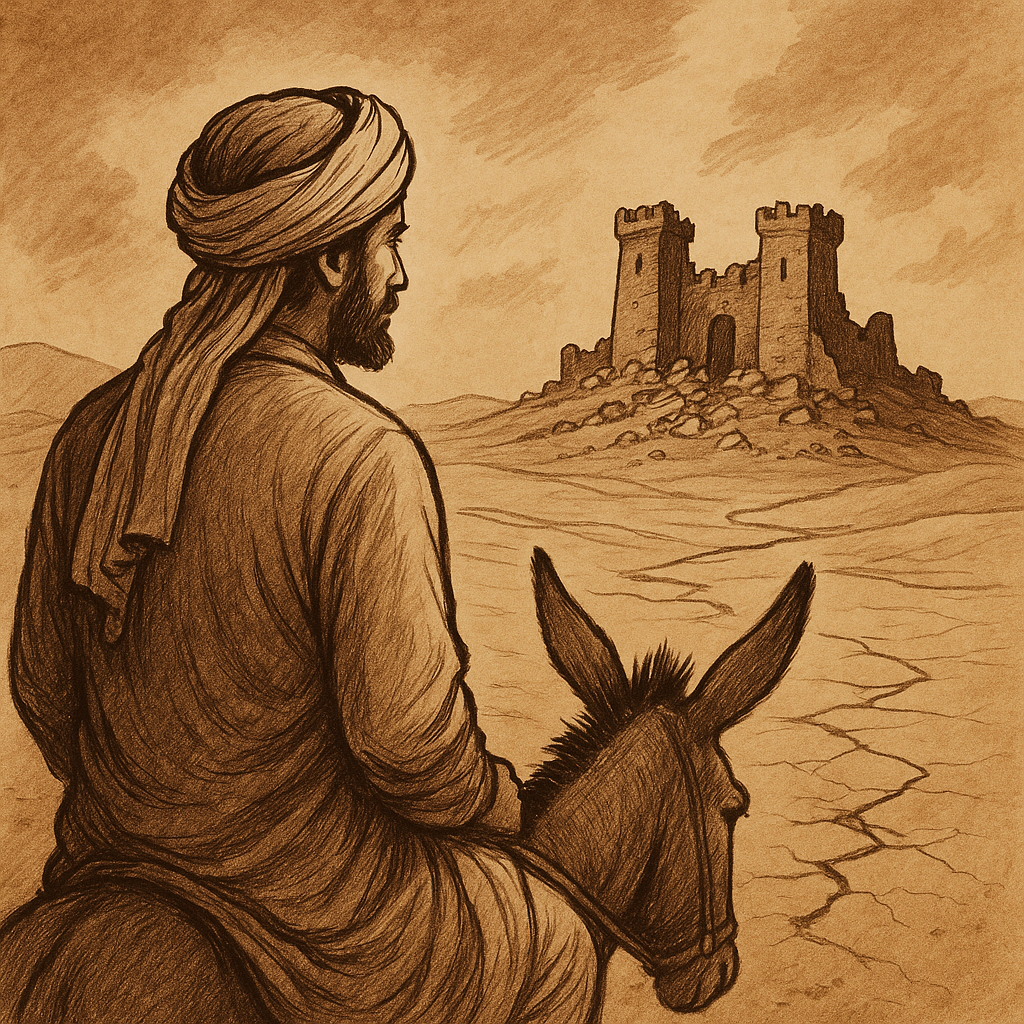When Do Noble Bloodlines Diminish?
As Lineage Fades, Can Character Alone Uphold Legacy?
By Raja Zahid Akhtar Khanzada
Can individuals from esteemed lineages become base in character? The answer is a resounding yes. If family nobility is built solely on the “shifting sands of ancestry,” easily scattered by the winds of time, then it becomes merely a title of hollow boasting. In such families, the moral legacy that truly made them “noble” fails to pass down through the generations. They inherit the genes, wealth, and power of their forebears but lose the essence of humility, gratitude, and humanity. In doing so, they reduce the “solid stone of character” painstakingly carved by their ancestors into mere dust.
A person of noble lineage is like a lion of the jungle, whose roar commands awe and respect. But if that same lion is caged or forced to live among jackals and wolves, its roar weakens. Though still a lion, it begins to adopt the ways of the pack — cowering like a coyote, losing the majesty in its eyes and the authority in its voice. Once trapped in the circus cage, it performs tricks at the ringmaster’s command. The ancestral blood in its veins may occasionally stir — it may even let out a half-hearted roar — but it eventually bows to the applause of the crowd and the ringmaster’s smile. Its grandeur is reduced to a spectacle, chained and mocked.
Such is the fate of a well-born individual who falls into the company of those with narrow minds and shallow values. Over time, he adopts their ways, speaks their language, and gradually loses his own identity. What was once a proud family legacy becomes a forgotten tale — no longer a reality.
Sometimes this decline enters through marriage. If a man from a respected family marries a woman of petty temperament who comes to dominate him, he may forget the dignity flowing in his veins and mould himself to her ways. He becomes not a husband, but a servant, and the family name he once took pride in becomes a mere joke.
Similarly, when a person of refined upbringing keeps company with those who do not value time, respect relationships, or trample over honour without a second thought, he too is gradually corrupted. He forgets his own greatness and becomes a prisoner of small-mindedness. True nobility, it seems, does not reside in blood — it breathes in character. And character is shaped, for better or worse, by one’s environment.
Examples of this abound at every turn of life:
A falcon raised among hens forgets how to fly.
A clear spring directed into a sewer becomes foul.
A sword left buried in rusty soil loses its edge.
A truly noble person is not one who merely name-drops illustrious ancestors, but one who maintains his integrity and honour even when surrounded by moral filth. If one keeps low company or marries into a family without refinement, ancestral pride becomes little more than a story. After all, a lion wasn’t born to dance at the ringmaster’s stick, nor an eagle to peck at the ground.
Lineage is like the roots of a tree. If the roots are strong, even the fiercest storm cannot bring it down. But if those roots grow weak, even a lion becomes a circus toy, and an eagle pecks at the dirt like a common chicken.
A recent video on social media made me forget the pages of many books. It captured a truth that no confined words could fully convey: two luxury cars, symbols of steel and social arrogance, suddenly humbled themselves, making way for a humble donkey cart. That moment held a powerful philosophy: true greatness lies in making space for others, not in blocking paths with one’s might.
But in that very moment, a painful old memory surfaced — from my homeland, Sindh. On a small public road near Tando Allahyar, a relative of a powerful landowner was speeding in his large car like a hostile wind. A donkey cart appeared ahead. The horn blared, but the poor cart driver couldn’t move aside quickly enough. What followed? The man stepped out of his vehicle like a beast and slapped the helpless cart driver before speeding away. This was the same family that owned thousands of acres, controlled countless peasants, and even maintained a private jail. Humiliating farmers over a small harvest, imprisoning tenants — these were second nature to them.
Coming to America, I observed a new contrast. On one hand, there were newly rich individuals whose minds seemed dazzled and diminished by the glitter of dollars. On the other, there were those from old, established families, born into wealth yet unchanged in humility and grace — wealth had only made them more polished, kind, and principled.
This tension revealed a clear truth: lofty bloodlines, tribal pride, and piles of wealth are all temporary shows. A person’s true identity is measured by their character — shaped by humility, generosity, and respect, making life easier for others.
Let’s be honest: nobility is not found in the blare of a car horn, nor on the high gates of palaces. It isn’t in the blood coursing through one’s veins. It reveals itself in the moment a powerful person humbly makes way for the weak. That is the character that immortalizes generations. That is the eternal fragrance that never fades, even across the deserts of time.
These two incidents are two sides of the same coin. On one side are those who, nurtured by true family values, prove their greatness by giving way to a poor cart driver. On the other is the landlord who had all the pretensions of nobility but not a drop of humanity in his veins. His claims of lineage were a mirage, a deception.
Family nobility is not a yellowed page of a pedigree scroll; it is a living tapestry of everyday actions. It is a lamp that stays lit in every darkness — provided someone tends to its flame. If the light goes out, the structure of lineage crumbles into dust.
The difference is this: noble people distribute ease; petty people distribute trouble. They oppose openly because opposition is the mark of the courageous. But hypocrisy, ingratitude, and backstabbing? Those are the weapons of the cowardly and the low.
People of lineage inherit character. They are not ungrateful. They don’t measure relationships on a scale of utility. They avoid opportunism and selfishness. They respect their benefactors and never put anyone in a position where they must mortgage their self-respect. They honour relationships and relationships are built not only by blood but also by grace and humanity. They know that embarrassing someone is not a victory lifting them up is. And they learn all this at home and from their environment. Noble people remember even the debt of a glass of water; the small-minded forget even the debt of blood. Sadly, life often brings us such opportunistic people who flatter for temporary gain, only to turn away when they’re done.
In the end, it must be said: family nobility is like the deep roots of a tree. If the roots are strong, even storms of pettiness cannot uproot it. But if these roots grow weak, even a lion becomes a circus toy, and an eagle is forced to peck at the ground like a chicken.
Being “well-born” isn’t about ancestry or snobbery it reveals itself through character, upbringing, and action. Those who are truly noble are known by their deeds. They need not beat drums about their family name. The world says of them, “These are people of lineage.” But those who insist on calling themselves “noble” often lack depth of character. Real nobility is recognized through actions, not empty claims. It has less to do with birth and everything to do with strength of character. It is a fragrance that lasts, whether kept in a pot of gold or one of clay.




